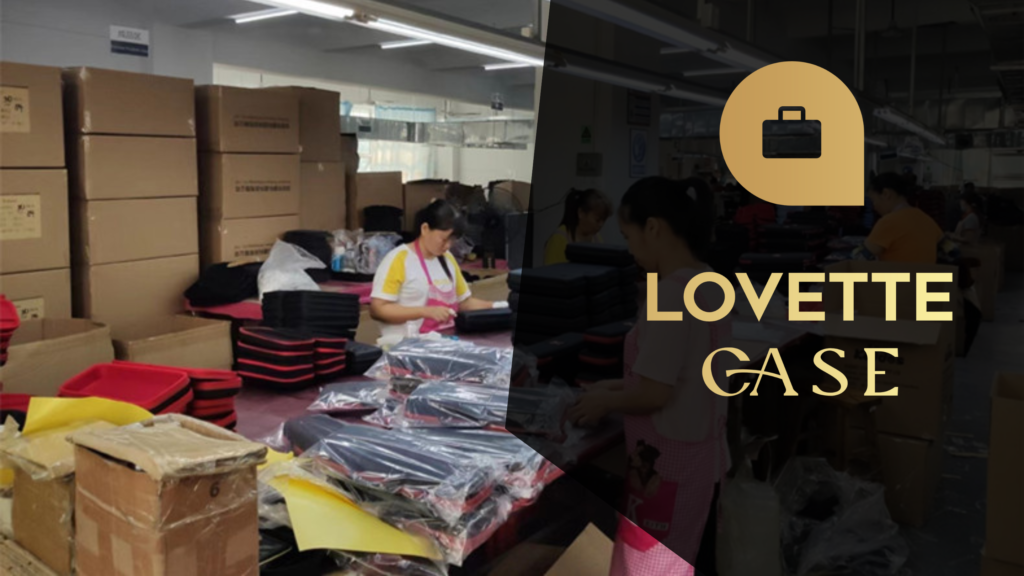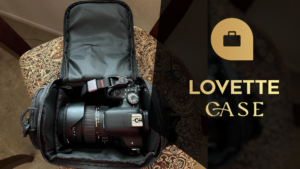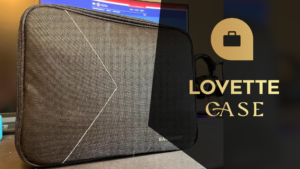In a world where product safety, functionality, and branding are increasingly intertwined, custom EVA cases present a solution that ticks all these boxes. Whether you are a business owner, a product designer, or someone in charge of procurement, consider how a custom EVA case can elevate your product’s value and appeal.
A custom EVA case manufacturer designs and produces unique protective cases using Ethylene-Vinyl Acetate, a flexible, rubber-like polymer. These bespoke cases cater to diverse industries, offering tailored protection for items from medical devices to industrial tools, ensuring perfect fit, safety, and style.
EVA Material: Properties and Uses
Ethylene-Vinyl Acetate (EVA) is more than just a material; it’s a cornerstone of modern product design and protection. This polymer stands out for its remarkable blend of properties – it’s as flexible as rubber, as strong as plastic, and incredibly light. Its resistance to UV radiation, water, and stress-cracking makes it indispensable across numerous applications. You’ll find EVA in everyday items like sports shoes, where it provides cushioning and support, and in the industrial sector, where its shock absorption qualities protect sensitive equipment. EVA’s adaptability has led to its widespread use in everything from children’s play mats to components in solar panels.
The Importance of Custom Cases in Industry
In a world where product safety and brand presentation are paramount, the role of custom cases cannot be overstated. Custom EVA cases serve as the first line of defense for valuable and delicate items across various industries. In healthcare, they safeguard critical medical devices; in electronics, they protect gadgets from the rigors of transport and use; and in the realm of sports, they ensure that high-performance gear remains in top condition. But these cases are more than just protective shells; they are branding powerhouses. A well-designed case can elevate a product’s image, making it instantly recognizable and adding to the overall customer experience.
OEM and ODM in Case Manufacturing: An Overview
Understanding the intricacies of OEM (Original Equipment Manufacturer) and ODM (Original Design Manufacturer) is key to grasping the full scope of custom case manufacturing.
- OEM – Tailoring to Exact Specifications: OEM is the go-to option when precision is paramount. Here, clients come with specific designs and precise requirements. The manufacturer’s role is akin to an artisan, meticulously crafting cases to these detailed specifications. This approach is favored by brands that have a clear design ethos and need a manufacturing partner to execute their vision with precision.
- ODM – Where Design Meets Manufacture: ODM is where creativity meets craftsmanship. In this model, the manufacturer is not just a producer but a design partner. Clients who may have a concept or a basic idea but require expertise in design and material selection opt for ODM. The manufacturer uses their market insights and technical knowledge to create a product that is both functional and aesthetically pleasing, often leading to innovative solutions that set new market trends.
Custom EVA Case Manufacturing Explained
What is a Custom EVA Case Manufacturer
A custom EVA (Ethylene-Vinyl Acetate) case manufacturer specializes in designing and producing bespoke protective cases using EVA, a polymer known for its rubber-like softness and flexibility. These manufacturers play a crucial role in various industries by providing tailored protective solutions for products ranging from delicate medical devices to rugged industrial tools. Unlike off-the-shelf cases, custom EVA cases are specifically designed to meet the unique needs of each product, ensuring an optimal fit, protection, and aesthetic appeal.
Benefits of EVA for Protective Cases
EVA (Ethylene-Vinyl Acetate) is a popular choice in the manufacturing of protective cases due to its numerous beneficial properties:
- Durability: EVA’s resistance to cracking, UV radiation, and water makes it ideal for long-term protection of contents. This durability ensures that items remain secure and intact under various conditions.
- Flexibility: The material’s inherent flexibility allows it to be molded into almost any shape, offering a snug fit and enhanced protection for specific products. This adaptability is crucial for creating custom cases that match the exact dimensions of the items they are designed to protect.
- Lightweight: One of the standout features of EVA is its lightness. This quality adds minimal weight to the encased items, which is crucial for portability and ease of handling.
- Shock Absorption: EVA’s rubber-like properties provide excellent shock absorption. This means it can effectively safeguard contents from impacts, drops, and vibrations, ensuring the safety of delicate and sensitive items.
- Aesthetic Appeal through Composite Materials: While EVA itself is typically a bit coarse for direct use in case exteriors, it is commonly bonded with various fabrics such as Oxford cloth, PU leather, and other textiles. These combinations not only enhance the durability and structural integrity of the cases but also allow for a wide range of aesthetic finishes. By employing different textiles and printing techniques, manufacturers can achieve diverse designs and textures, making EVA cases aesthetically versatile and suitable for branding and design purposes.
- Environmental Resistance: EVA maintains its integrity in extreme temperatures and when exposed to chemicals. This environmental resistance is essential for cases that are used in a variety of settings, from industrial sites to outdoor environments.
Through the custom manufacturing of EVA cases, products are endowed with not only superior protection but also a tailored design that effectively reflects a brand’s image and fulfills specific functional requirements. The combination of EVA with other materials broadens the scope for customization, ensuring both safety and style, which makes these cases a preferred choice across diverse sectors.
The Custom EVA Case Making Process
The process of crafting custom EVA cases involves a meticulous blend of design, material selection, and quality control. Each step is integral to ensuring the final product not only meets the client’s specifications but also adheres to high standards of quality and durability:
- Consultation and Design: The journey begins with a thorough understanding of the client’s needs. This stage involves discussions about the size, shape, and protection requirements of the item to be encased. Designers utilize this information, often with the aid of 3D modeling software, to craft a prototype design that aligns with the client’s vision.
- Material Selection and Composite Formation: Selecting the right materials is pivotal. This step includes choosing the appropriate densities and compositions of EVA foam based on factors such as impact resistance, temperature tolerance, and weight. At this stage, lining materials like nylon or velvet are also selected and then bonded to the EVA foam using adhesives. This composite formation is crucial for ensuring both protection and a premium feel to the case.
- Molding and Crafting: With the materials and design in place, the EVA foam is then molded and shaped into the desired form. Techniques like die-cutting, compression molding, and thermoforming are employed to achieve the precise shape and features detailed in the design. The heat pressing on the reverse mold ensures that the composite material takes the intended form, marrying functionality with design.
- Finishing Touches and Assembly: Once the case components are formed, additional features such as pockets, straps, or custom logos are added. This step involves sewing techniques to assemble all parts into a cohesive unit. The use of flat and high-seam sewing processes ensures that every element of the case is securely and aesthetically integrated.
- Finishing Touches and Quality Control: The final phase involves adding additional features like pockets, straps, or custom logos using advanced sewing techniques. Quality control is conducted throughout this phase, with a focus on ensuring every aspect of the case is flawlessly executed. The QC process involves inspecting the cases for any defects or deviations from the desired specifications, ensuring that every unit meets the high standards expected by the client.
Understanding OEM vs. ODM in Custom Case Manufacturing
Custom Case Production: OEM vs. ODM
When it comes to custom EVA case manufacturing, the terms OEM (Original Equipment Manufacturer) and ODM (Original Design Manufacturer) represent two distinct approaches to production.
OEM Services: In OEM, the case manufacturer produces items based on the design and specifications provided by the client. The client retains control over the design, and the manufacturer’s role is to realize that vision accurately. This approach is ideal when the client already has a developed product design and needs a manufacturer to produce it.
ODM Services: Contrarily, ODM involves the manufacturer not only producing but also designing the product. Here, the client may have a concept or a basic idea, and the manufacturer uses their expertise to design and produce the final product. This service is suitable for clients who require both design and manufacturing expertise.
OEM Benefits for Custom Cases
OEM services offer several key benefits for businesses:
- Branding and Customization: OEM allows for complete customization of the case design, enabling businesses to incorporate their branding elements such as logos, colors, and specific design features. This is crucial for brand recognition and marketing.
- Specific Design Requirements: With OEM, businesses can ensure that their exact design requirements are met, whether it’s for fitting unique product dimensions, incorporating specific materials, or adding unique functional features.
- Quality Control: As the design is provided by the client, they have more control over the quality and consistency of the final product.
Advantages of ODM in Case Design
ODM services come with their own set of advantages:
- Innovation and Expertise: ODM leverages the manufacturer’s design expertise, often leading to innovative solutions that the client may not have considered.
- Reduced Design Time and Costs: Since the manufacturer handles both design and production, the overall time and costs associated with the design process are reduced. This is particularly beneficial for startups or businesses without in-house design capabilities.
- Market Insights: Manufacturers with ODM services often have extensive knowledge of market trends and materials, which can be invaluable in developing a product that is both functional and appealing to the target market.
Step-by-Step Custom EVA Case Creation
Custom EVA Case Creation Process
The journey of customizing an EVA case is both intricate and collaborative, involving several critical steps:
- In-depth Consultation: This foundational stage sets the tone for the entire project. Clients present their specific requirements, such as the type of product to be encased, its dimensions, environmental exposure, and any particular protective features needed. This is also where discussions about aesthetic preferences take place, including branding elements, color schemes, and textures.
- Advanced Design Phase: Leveraging cutting-edge design tools, such as 3D CAD software, designers translate the client’s requirements into a tangible design. This stage often involves multiple iterations, as designers work to balance functionality with aesthetics. Material selection is also crucial here, considering factors like cushioning properties, durability, and weight.
- Prototyping – Bringing Design to Life: The prototype is a critical touchpoint in the customization process. It’s a tangible representation of the case design, offering the first opportunity to assess the look and feel of the product. This stage often includes stress testing under various conditions to ensure the case meets all functional requirements. Client feedback during this phase is invaluable, leading to any necessary adjustments.
- Precision Production: Post-approval of the prototype, the case enters the production phase. Employing state-of-the-art manufacturing techniques, such as precision die-cutting and thermoforming, each case is crafted to exact specifications. Quality checks are integral at this stage to ensure every case meets the set standards.
Client-Manufacturer Collaboration in Customization
The customization process is characterized by a deep collaborative relationship between the client and the manufacturer, which involves:
- Ongoing Communication: Regular updates and discussions ensure that the client’s vision is being accurately followed and allows for timely adjustments.
- Expert Guidance: Manufacturers bring their expertise to the table, advising on the best materials and design choices based on the product’s needs and intended use.
- Feedback Integration: Client feedback is a cornerstone of the process, ensuring the final product not only meets but exceeds expectations.
Value of Customized Case Design
Customization is not just about creating a functional case; it’s about adding value to the product it protects:
- Precision Fit for Maximum Protection: Custom cases are engineered to fit the product like a glove, offering unparalleled protection against shocks, vibrations, and environmental factors. This precision fit is especially vital for sensitive equipment or high-value items.
- Branding and Marketing Tool: A customized case is a powerful branding tool. It’s an opportunity to showcase the brand, with logos, brand colors, and designs that resonate with the company’s identity and values. It turns the case into a mobile billboard, enhancing brand visibility.
- Enhancing Consumer Experience: A well-crafted custom case significantly elevates the consumer’s unboxing experience. It adds a layer of sophistication and perceived value to the product, potentially increasing customer satisfaction and loyalty.
The journey through the specifics of OEM and ODM services has highlighted how these approaches cater to distinct needs. OEM services offer precision and adherence to specific design visions, essential for brands with established designs needing exact replication. On the other hand, ODM services bring the creativity and expertise of the manufacturer to the forefront, ideal for those seeking innovative solutions and design expertise.
Are you looking for a way to protect your products while also enhancing your brand’s image? Do you need a tailored solution that meets specific design requirements? Lovette Case is here to help. Our expertise in custom EVA case manufacturing, combined with our comprehensive OEM and ODM services, ensures that your products are not only safe but also stand out in the market.











